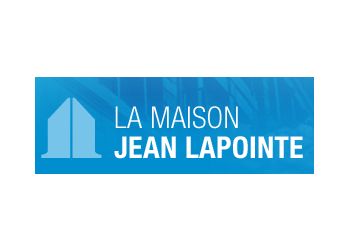Gambling Rehab Montreal
Addiction to gambling is linked to a range of serious personal and social harms such as depression and suicide, bankruptcy, family breakup, domestic abuse, assault, fraud, theft, and even homelessness. These effects can be devastating to the individual as well as their friends, family, workplace or community. That is why the Canada Safety Council considers gambling addiction a community safety and crime prevention issue.
People with gambling problems may cover up or lie when asked where they have been, or where money has gone. This makes problem gambling hard to identify. Families often know something is wrong — but not what is wrong.
Gambling Addiction Treatment Last Door has qualified, effective staff and programs to treat co-existing addictive disorders. Staff training includes Level I and Level II Advanced Problem Gambling Training, Compulsive Gambling/Ethics and Family Treatment Training as adjuncts to addiction training for both adult and adolescents presenting with co. Montreal Quebec settles gambling addiction lawsuit. The provincial government has now agreed to reimburse the costs of addiction treatment between 1994 and 2002. The money is to help gambling.
You could be living or working with a compulsive gambler and not know it until the problems are out of control. It’s crucial to recognize the signs and know how to get help.
“People who gamble excessively fear their loved ones will find them out,” says Robert Murray, Manager of CAMH’s Problem Gambling Project. “This drives them deeper into hiding and further into debt. They hope against hope a big win will end their problems.”
CAMH has devised a simple checklist for the public to take a look at to help determine whether a family member or colleague has a gambling problem. The more clues you see, the more likely that gambling is a problem needing to be addressed:
- Is your family member or colleague often late for work or school?
- Are they gone for long unexplained periods?
- Do they neglect responsibilities, and make excuses?
- Have they withdrawn from family and friends?
- Do they have mood swings and sudden outbursts of anger?
- Is there less money available, even though income has not changed?
- Is money missing from the house or from bank accounts?
- Are they secretive and bad tempered about money?
- Do they have money conflicts with others?
- Do they talk about gambling all the time?
- Do they lie about gambling?
Counseling is the first step to regaining control of the problems that gambling has caused, and is the best way to find a long-term solution. Free treatment, including counseling, is available to anyone affected by gambling, including family members. A list of gambling help lines across Canada is available at: www.ccsa.ca ; search for “gambling help lines.”
Problem Gambling Helplines in Canada
Confidential and open 24 hours a day.
Alberta Alcohol and Drug Abuse Commission Helpline
1-866-332-2322
British Columbia Problem Gambling Information and Referral Service
1-888-795-6111
Manitoba Gambling Helpline
1-800-463-1554
New Brunswick Problem Gamblers Hotline
1-800-461-1234
Newfoundland and Labrador Helpline
1-888-899-4357
Nova Scotia Toll-Free Gambling Helpline
1-888-347-8888
Nunavut Kamatsiaqtut Helpline
1-800-265-3333
Ontario Problem Gambling Helpline
1-888-230-3505
Prince Edward Island Gambling Addiction Treatment Program
1-888-299-8399

Québec – Gambling Help and Referral
(514) 527-0140 Montreal and surrounding area
1-800-461-0140 and 1-866-767-5389 throughout province
Saskatchewan Problem Gambling Helpline
1-800-306-6789
Source: Canadian Centre on Substance Abuse
General information

In light of the current situation, scheduling of outpatient services in dependency may vary. Please contact our services for confirmation of schedule.
Help is only a phone call away
CENTRALIZED INTAKE
(Processing of all applications for you or a loved one)
450-443-4413 (main number)
Toll-free: 1-866-964-4413
Partners who have had training must fill out the service request form and return it by fax 450 443-0522 or by email at accueil.dependance.cisssmo16@ssss.gouv.qc.ca
Specialized addiction rehabilitation services aim to prevent, reduce and treat the problems related to alcohol, drugs (including prescription medications), gambling, compulsive buying, and Internet use. These services, open to all Montérégie residents and to English-speaking Montrealers, are available to teenage or adult addicts and their loved ones.
These free, confidential and personalized services are for people who:
- are concerned about their substance, gambling or Internet habits, or those of a loved one;
- are experiencing negative effects (physical and mental) related to their substance, gambling or Internet habits (lack of energy, relationship problems, decreased productivity at work, health problems, etc.), or those of a loved one;
- feel like they have lost control of their substance, gambling or Internet habits;
- have tried several times, unsuccessfully, to limit or quit their substance, gambling or Internet habits;
- want to find ways to change their habits and manage the issues related to their substance, gambling or Internet habits.
We offer personalized services. The intensity of the treatment depends on the teen’s or adult’s condition, expectations and objectives with respect to their substance, gambling or Internet habits.
- More information about the Youth rehabilitation program (aged 17 and under)
- More information about the Adult rehabilitation program (aged 18 and over)
Gambling Rehab Montreal City
Referral forms
Gambling Rehab Montreal France
(for use by the partners only)